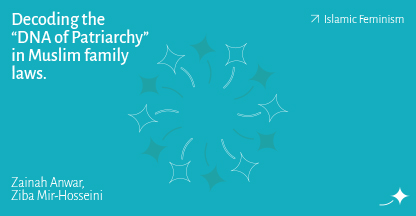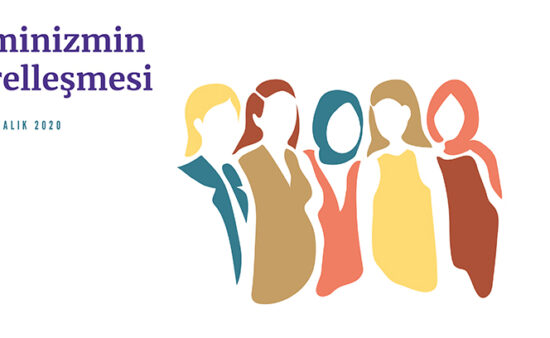December 19, 2020
In this article, I will discuss the opinions of immigrant women living in America on gender construct and gender equality, whom I interviewed during my doctoral research. It would not be wrong to argue that the interviewees’ views on gender, who are predominantly first-generation immigrants, were formed in Turkey, where they went through socialization processes before the migration movement. It is possible to see that the gender definitions of immigrants who draw a thick line between femininity and masculinity are based on some essentialist arguments. While the interviewees equate femininity with passivity, sensuality, compassion and softness, masculinity is built with the definitions of being calm, tough and sensible outside the home but careless and superficial at home. Moreover, the content of these constructs does not differ significantly when variables such as women’s education level, socio-economic status and their levels of religious belief are taken into account.
At the beginning of the interviews, the majority of the interviewees answered a quick “No” to the question: “Do you think men and women are equal?” For example, Buse, a pious young mother who does not work outside the home, drew attention to the difference between men and women in her answers. She argued that men would not be interested in decorating a new house due to their nature. Buse said that hanging the curtains does not mean anything other than protecting the house from the outsider eyes for men and she claimed that women will attach importance to the color or the pattern of the curtain as well as its possible harmony with the furniture in the house. Buse continued as follows: “Man looks at things in a superficial way. Therefore, I think men and women are not equal. Man settles for what he sees, but the woman thinks of everything. “Other participants also emphasized that men and women cannot be equal due to their natures, by referring to the essentialist arguments I have just mentioned. I saw that these clear and confident statements began to crack when women started talking about their daily practices and life experiences. Even if they didn’t say it openly, immigrant women were voicing demands for equality around three different themes related to home and public sphere.
The first theme I came across with was the women’s demand for equal voice with their husbands upon the decisions taken inside the house. Cahide, who is married with two children and has never worked outside the home, tried to explain her situation with the religious references she gave. “For example, our Prophet says that he would like to worship, he gets permission from his wife, our mother Ayşe.” Based on this example, she explained that they make all the decisions at home as a family, and that not only her husband gets a say around the house. She ended her words by saying: “There is no male or female. They’re equal. ”
The second theme was the demand for equality in housework which is mainly expressed directly by women working outside the home, but also mentioned by some interviewees who do not work outside the home. This request was often expressed in the word “assistance”. Pelin, who works both outside the home and is an active woman with the organizations she organized for women in the mosque, stated that she wanted her husband to help her because she was working. She did not even limit this to her own spouse and stated that all fathers should be responsible for caring for their children. While expressing this request, she often broke her sentences short, paused, and continued after a short silence. After emphasizing that women do not have physical strength like men, so they cannot be equal with them, Pelin stated that she thinks that women and men can share the responsibility when it comes to housework and childcare.
The last theme I encountered was the demand for equality in terms of abilities. Asya was one of the interviewees who claimed that women can do everything men do. Growing up in a conservative environment in a small settlement in Turkey, a university graduate but always working in low-income jobs in the US, Asya was working in a supermarket when I spoke to her. She stated that women are responsible for matters such as motherhood and keeping the house in order. She, on the other hand, was against labeling jobs as ones that men and women could do. “I can do whatever men around me do.” said Asya who claimed that while men have an advantage in terms of physical strength, there is no difference between men and women when it comes to abilities and skills.
In addition to their demands for equality, the biggest impact of immigration to the US on gender construct appeared before me in the fear of the interviewees not being able to control their children’s sexuality. The immigrant women I interviewed thought that premarital sex was not considered as “out of the norm” in American society. They were more concerned about the possibility that the pudicity regime, which we can consider as a set of rules that control and regulate women’s sexuality, will lose its authority in the USA and thus the sexuality of girls cannot be controlled. It was a great risk for immigrant women that these rules related to pudicity, which their children would learn through similar social processes, would lose their power in American society if they lived in Turkey. This risk meant transferring the pudicity regime to the younger generation and reinforcing the border drawn between gender constructs.
Ayfer, whom I met at the mosque one summer evening, who is a married woman with one kid drew attention to this issue. We were in the living room of her mother-in-law Umay’s house for the meeting. There were Umay and his close friend Mesude, Mesude’s nephew who went to high school and Ayfer’s daughter who went to high school as well. One thing lead to another and the situations where the relationships between men and women in the USA set a “bad” example were brought up. After a while, Ayfer, who were answering my questions, started speaking not to me but to the young girls, both of whom grew up in the USA. Ayfer, who works in a bridal shop serving American customers, said that the brides who came to the shop lived in the same house with the grooms for years. Ayfer was trying to argue that premarital sexual intercourse should not be before marriage but she could not put it openly, so she followed an alternative route and said that women who live in the same house without a marriage bond with their boyfriends will hardly marry because men then would have no reason to get married.
If I have to summarize the arguments that I have tried to explain briefly here, it is not possible to say that the gender constructs of the first generation women have changed by moving to USA and this shows up as a result of their socialization processes in Turkey. On the other hand, we observe that even though they oppose gender equality on a discursive level, they demand equality through daily experiences. However, when it comes to the control of sexuality in American society, it is possible to say that it is mostly handled as an “issue of femininity” and a border is drawn again between the genders.
The first draft of this article, with the title “Opinions of Turkish Immigrant Women Residing In the USA on Gender Constructs”, was presented on December 19, 2020, at the “Localization of Feminism” conference organized by Havle Women’s Association. You can click here to access other texts of our Feminism Localization conference.

